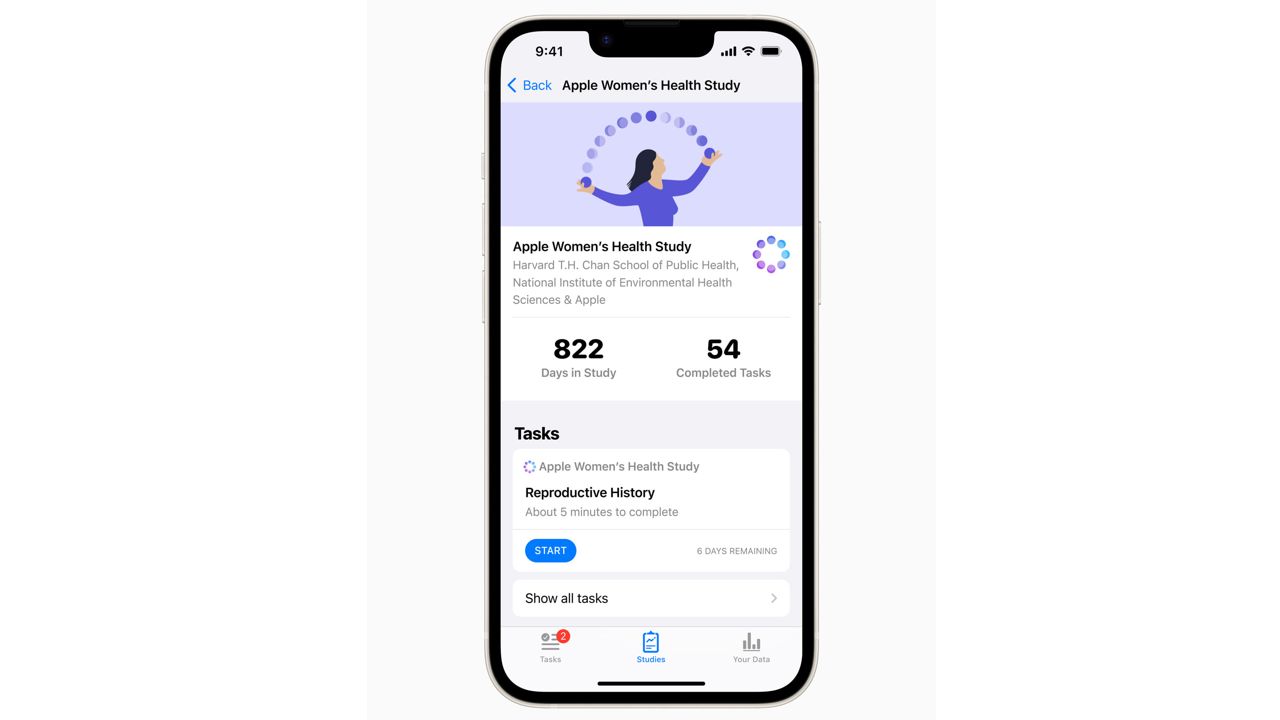To celebrate the International Women’s Day of March 8, Apple shared the results of its Women’s Health Studyfocused on the results of research carried out via iPhone and Apple Watch in relation to menstrual cycles.
Apple celebrates women by highlighting the importance of menstrual cycle health
According to Apple, studies on the menstrual cycle are currently still “significantly underestimated”, since, although even doctors affirm the importance of keeping an eye on the health of the menstrual cycle, at present there are still no prominent focuses focused on the topic.
Therefore, the Women’s Health Study stands as a “first-of-its-kind research study” on which Apple is working closely with both theHarvard T.H. Chan School of Public Health both with the National Institute of Environmental Health Sciences (NIEHS), aiming to advance understanding of the menstrual cycle and how it relates to various health conditions such as polycystic ovary syndrome, infertility, and the menopausal transition.
“There is a need for greater awareness of menstrual cycle physiology and the impact of irregular periods and PCOS on uterine health,” said the Dr. Shruthi Mahalingiahassistant professor atHarvard Chan School and co-principal investigator of theApple Women’s Health Study.
“This analysis highlights the importance of talking to a healthcare professional when menstruation is experiencing persistent changes in their period that extend over many months. Over time we hope our research will lead to new strategies to reduce disease risk and improve health across the lifespan.”
Let’s look at the preliminary results
Using the results of the Apple Women’s Health Study survey, researchers at the Harvard Chan School analyzed data from more than 50,000 participants, including:
- il 12% reportedly reported having a diagnosis of polycystic ovary syndrome, risking the 4% plus endometrial hyperplasia (aka precancer of the uterus) e 2.5 times more the risk of contracting uterine cancer.
- il 5,7% of participants reported that their menstrual cycles take or took at least 5 years to adjust after their first period. As a result, more than twice the participants are at risk of endometrial hyperplasia, but also of having 3.5 times more chances of contracting uterine cancer compared to those who reported having had to wait up to a year to see the cycle regularize.
For those interested in keeping an eye on the monitoring of their menstrual cycle, all they have to do is open the app Salute on iPhone or Apple Watch and select Cycle Tracking.
For more information on the Apple study, click here.















Leave a Reply
View Comments